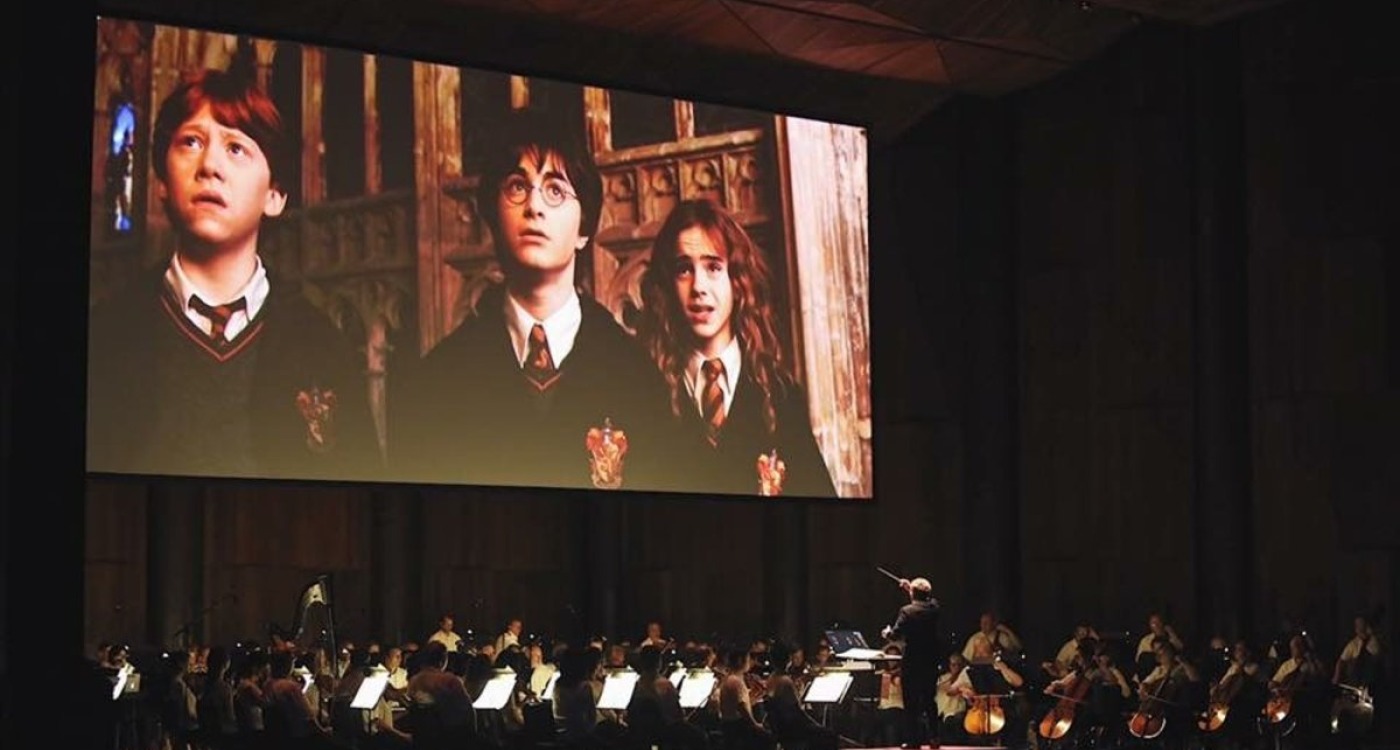The real magic of Harry Potter at the Mann doesn't come from wizards

JULY 29, 2017
Slaying a 60-foot serpent so you can plunge one of its fangs into a book that keeps the soul of your nemesis is something you can expect with a fair amount of certainty in a Harry Potter film.
Getting to the last reel before threatening storm clouds can foil one of the biggest nights of the summer at the Mann Center — that’s where the real suspense was Friday night.
But the Mann squeaked by, threading along an audience of nearly 8,000 to the end of Harry Potter and the Chamber of Secrets in a relatively dry state.
These outings with the boy wizard in Fairmount Park have fast become tradition. Last summer, the Mann hosted the first film in the franchise, giving the arts center one of its most lucrative events of the season.
What raises a night at the movies to the level of an event, though, is the music — played by live orchestra. The Mann might have been envisioned for a Philadelphia Orchestra playing Beethoven and Shostakovich, but both the orchestra and Mann these days are heavily into movie scores.
Not all films have music that benefits from being played by a world-class orchestra. But this one does, and so colorfully drawn is John Williams’ music in these first couple of Harry Potter films that it’s hard to separate sound from story. It’s only because the score is so good that the movie draws such a perfect alignment of interests. The Mann’s lawn was the domain of 8-year-old wizards brandishing wands with lighted tips and college-age adults in Gryffindor robes. Under the covered pavilion, Potter aficionados stayed to the last credit, applauding names of revered actors as they appeared on-screen.
The orchestra did not want for attention. It got a deafening roar of approval at the end, with conductor Ludwig Wicki asking each section to stand for cheers.
The vastness of the Mann creates at least two distinct visitor sensations. Sitting under cover, close to the stage (where the seats are more expensive), the sound is loud and present, and the orchestra is a vivid part of the experience. Out on the lawn, the bond between audience and stage is looser. There, you focus on the movie shown on screens mounted to the pavilion, and the sound, coming through speakers, might as well not be live. The sound mix out on the lawn, too, heavily favors sound effects. A quidditch match was less about the racing orchestral music than whizzing sounds and thuds.
Sound under the pavilion, though also amplified, was glorious, and it was here that the power and subtleties justified the presence of a live orchestra. The best marriage of music and image in this film comes when Harry gets sucked into Tom Riddle’s diary. Williams gets a good stretch of time here, sharpening the flashback with great emotional complexity. He stabs at our heart with music that hangs in that uneasy realm between excruciatingly beautiful and disturbing.
The last scene, where Hagrid returns from prison to the warm embrace of Hogwarts, would be nothing without music, and this music specifically — a sound tapestry of buoyant triumph and well-being. The scene, overflowing with food, glistening lighting, and love passed among wizards wizened and budding, tells us that Hogwarts is the greatest place on earth. The music made us believe it.
Read the full article at Philly.com